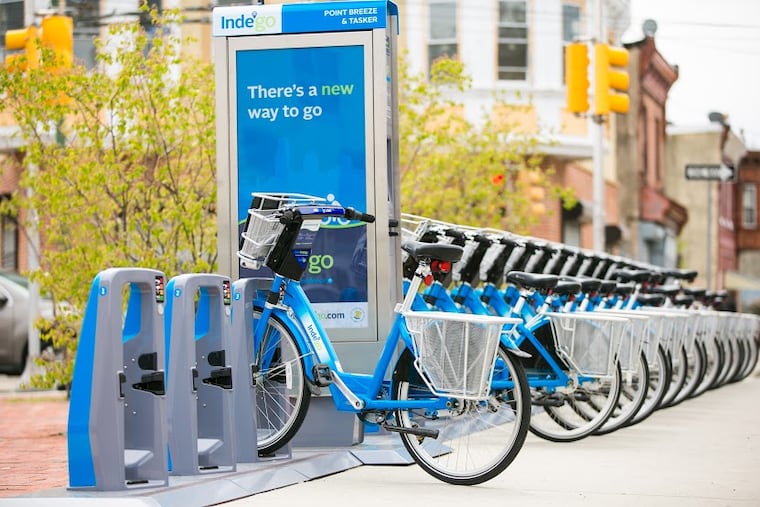Free bike share for essential workers amid coronavirus? Philly should follow NYC’s plan. | Opinion
This idea is not unprecedented. It was implemented in New York City, where all healthcare and public safety workers received a one-month membership to Citi bike.

On April 10, a video posted on Twitter by the Philly Transit Riders Union’s account showed a black man being dragged off a SEPTA bus by several police officers because he was not wearing a face mask as required by SEPTA’s then-policy. Since then, the transit authority said that it will no longer enforce its policy requiring riders to wear facial covering. Still, this story highlighted the risks public transit passengers and drivers are facing during our city’s social distancing efforts, aimed at softening the blow of the COVID-19 pandemic.
While commercial businesses are operating in survival mode and most people are expected to telework, essential employees must still go to work. For those who depend on public transportation, how feasible is it really, to remain six feet away from the next passenger? Can this distance be enforced while people need to get to work, and on time, while SEPTA has slashed schedules?
There is an opportunity to reduce dependency on public transit at this moment, and decrease the risk of exposure and transmission of COVID-19 among passengers and transit employees alike, through the city’s bike-share program.
Providing free bike-share memberships to people who rely on public transportation and are not able to telework would not only reduce the ridership volume and thus congestion of SEPTA trains and buses. It would also serve as a tool to address racial inequities in COVID-19 exposure and mortality. Consider these statistics:
Black people have accounted for disproportionately high rates of COVID-19 deaths in cities across the country, such as Milwaukee, Chicago, New Orleans, Detroit, and New York.
As data suggest, social distancing for many is a luxury: 1 in 5 black people and 1 in 6 Hispanic people are able to work from home, compared with about 1 in 3 white people.
Black Philadelphians have the lowest car-ownership rate (19.6%, vs. 6.5% for white Philadelphians), and rely on public transit to get to work more than any other group:
Among Philadelphians who take public transportation to work, 44% earn less than $25,000 per year.
Philadelphians pay the highest share of their income toward public transit fares compared with other large cities with high transit ridership.
This idea is not unprecedented. It was implemented in New York City, where all health-care and public safety workers received a one-month membership to Citi bike. It was also done in Bogota, Colombia, with the intent of reducing bus ridership and crowding.
The city’s Indego bike share has a fleet of more than 1,000 bikes, and though they might not all suffice for every essential worker, they can serve as a tangible contribution to our city’s social distancing efforts. While our hospitals’ employees and emergency responders work tirelessly to heal those afflicted by COVID-19, it is crucial that leaders use every tool possible to make social distancing more possible and less of a luxury in order to keep as many Philadelphians as possible safe and healthy.
Max Jordan Nguemeni Tiako is a fourth-year medical student at the Yale School of Medicine, and a research fellow at the Perelman School of Medicine at UPenn’s Center for Emergency Care and Policy Research. Follow him on Twitter at @MaxJordan_N